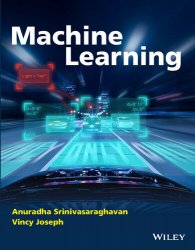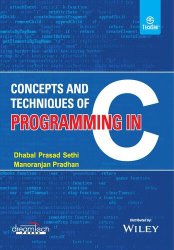- Добавил: literator
- Дата: 11-02-2025, 20:02
- Комментариев: 0
 Название: Machine Learning
Название: Machine LearningАвтор: Anuradha Srinivasaraghavan, Vincy Joseph
Издательство: Wiley
Год: 2019
Страниц: 328
Язык: английский
Формат: epub
Размер: 10.1 MB
Machine Learning (ML) belongs to a category of algorithms that allows for more accurate prediction without being explicitly programmed. It is similar to data mining and predictive modeling, especially where all three techniques require searching for patterns and adjusting program actions. Machine Learning algorithms are classified into supervised and unsupervised learning algorithms. In the case of supervised learning algo-rithms, data scientists have a set of training data through which they build the model. This book is for neophyte users who are getting acquainted to the concept of ML. This book is written keeping in mind the academic needs and requirements of undergraduate students. The language used in the book is simple and there are more than adequate examples. This book is an effort to deliver to the best of our abilities the concept of Machine Learning to beginners. It was a real challenge that was worth it at the end. Our first-time writing experience has been a wonderful journey, from the time we decided to write the book till its present form. It has really been a challenging experience to complete the latest updates about the subject, keeping in mind that we are catering to first-time readers. This book offers the readers the basics of Machine Learning in a very simple, user-friendly language. Chapters 3 and 4 elaborate on the basics of matrices and the basics of Python, which serve as the prerequisite for understanding Machine Learning.









